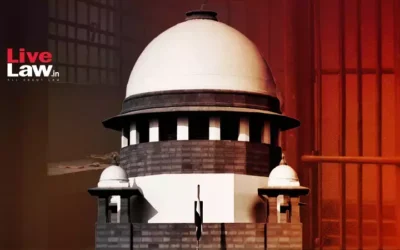Not Interested In Punishing Officers, Only Protecting Aravalli Hills: Supreme Court

Thank you for reading this post, don’t forget to subscribe!
The Supreme Court granted a final extension till October 15 for a panel to submit a “uniform definition” of the Aravalli hills, stressing protection over punishment. The bench warned that uncontrolled mining poses a serious threat to the region’s ecology.
New Delhi: On August 12, the Supreme Court said it was “not interested in castigating the officers” but focused only on protecting the Aravalli hills and ranges. The court granted a final extension of two more months to a committee to submit its report on creating a “uniform definition” of the Aravalli hills.
The case relates to the problem of illegal mining in the Aravalli hills and ranges, which pass through Delhi, Haryana, Rajasthan and Gujarat. In May last year, the Supreme Court observed that different states were using different definitions of the Aravalli hills, which was a major problem.
Due to this, states were following different yardsticks while granting permission for mining activities.
To address this issue, the court had ordered the formation of a committee to prepare a single, uniform definition of the Aravalli hills and ranges for all states concerned. The committee was expected to submit its report to the court.
On May 27 this year, the court had directed the committee to speed up its work and finalise the report within two months.
ALSO READ: Supreme Court Orders Action Against Officials Allowing Illegal Mining in Aravalli
When the matter came up again on Tuesday before a bench of Chief Justice B R Gavai and Justices K Vinod Chandran and N V Anjaria, Additional Solicitor General Aishwarya Bhati, appearing for the Centre, told the court that several meetings had already been held with the concerned officials.
She said that the information collected from these meetings was now being analysed. Bhati requested the court for a two-month extension to complete the analysis for the entire Aravalli range spread across the four states.
The bench recalled that in May, it had been informed that multiple meetings of the main panel and the technical support committee had already taken place and that the report was in its final stages. The judges noted that the two months granted earlier had expired on July 27.
The court emphasised that a policy decision on the definition of the Aravalli hills was necessary. It also observed that because of the differing definitions, each state was using its own standard while allowing mining work, which could harm the fragile environment.
While showing willingness to give more time to the committee as a “last chance,” the bench pointed out that members of the committee were technically liable for contempt of court since the May 27 order clearly required them to submit the final report within two months.
The bench said,
“We could have taken a serious view of the matter. However, we are not interested in castigating the officers. We are only interested in protecting the Aravalli hills and ranges.”
It further observed that it did not want
“any further damage to Aravallis hills” and warned that “if uncontrolled mining activities were permitted, it would cause a great threat to the ecology of the area.”
The court finally granted time till October 15 for the committee to file its report and recommendations. It also suggested that the committee should meet regularly, including virtually, to ensure the report is completed on time.
ALSO READ: BREAKING | Illegal Mining Case | Haryana Congress MLA Surender Panwar Arrested by ED
In its earlier order on May 9, 2024, the Supreme Court had said that the problem of mining activities in the Aravalli hills and ranges needed to be jointly addressed by the Ministry of Environment, Forest and Climate Change and the four states — Delhi, Rajasthan, Haryana and Gujarat.
Click Here to Read Our Reports on Illegal Mining

